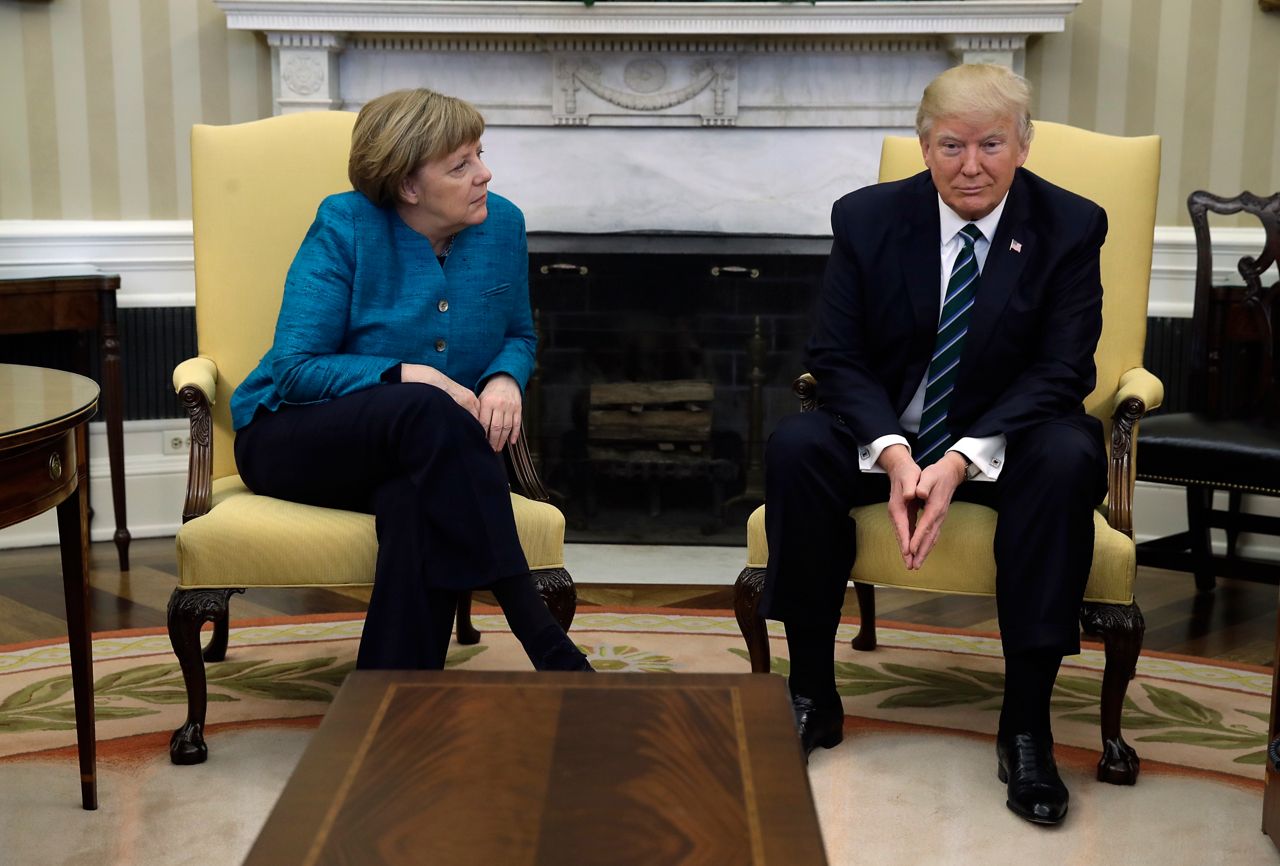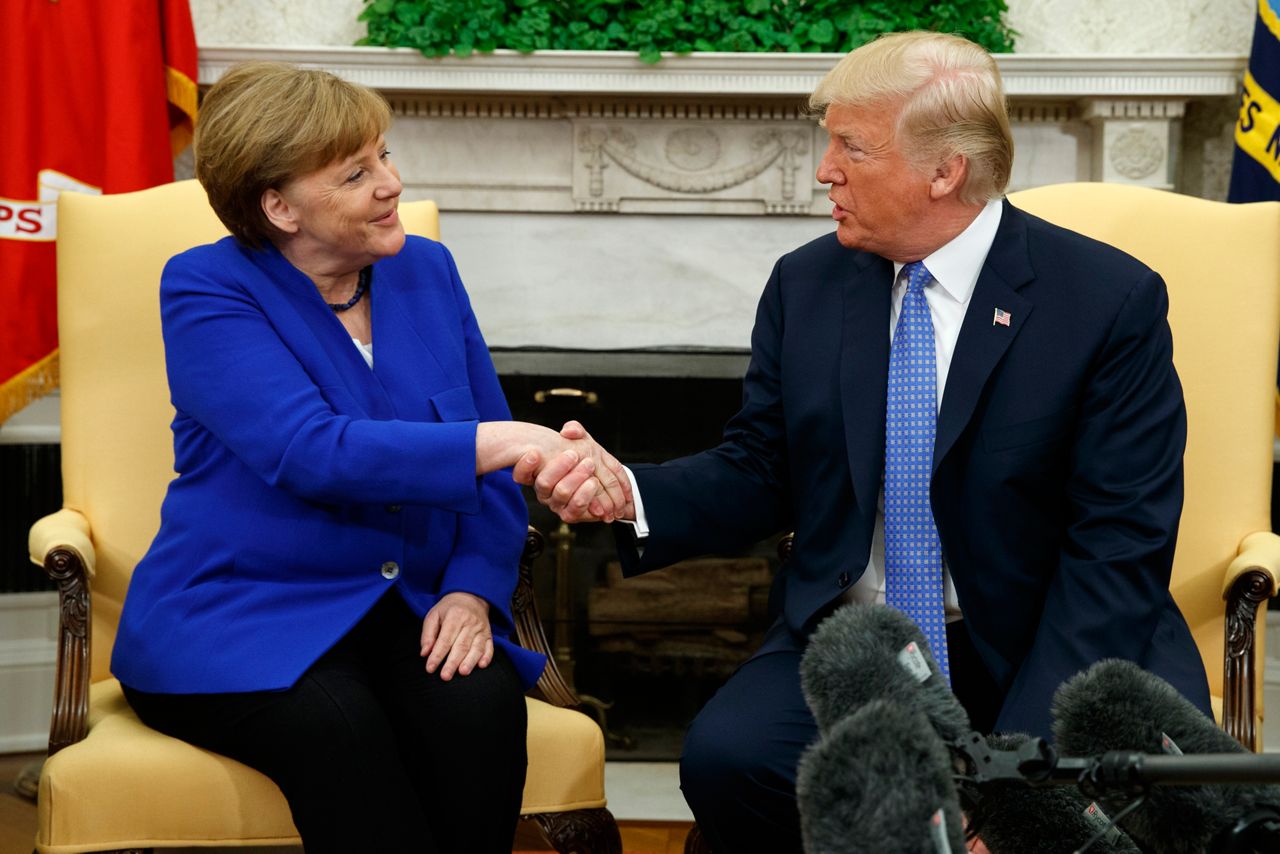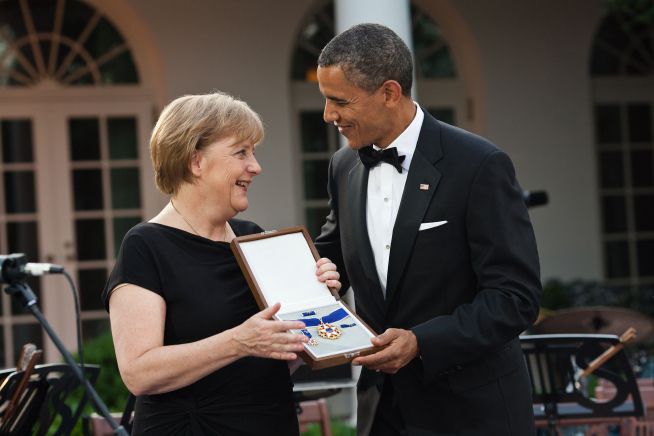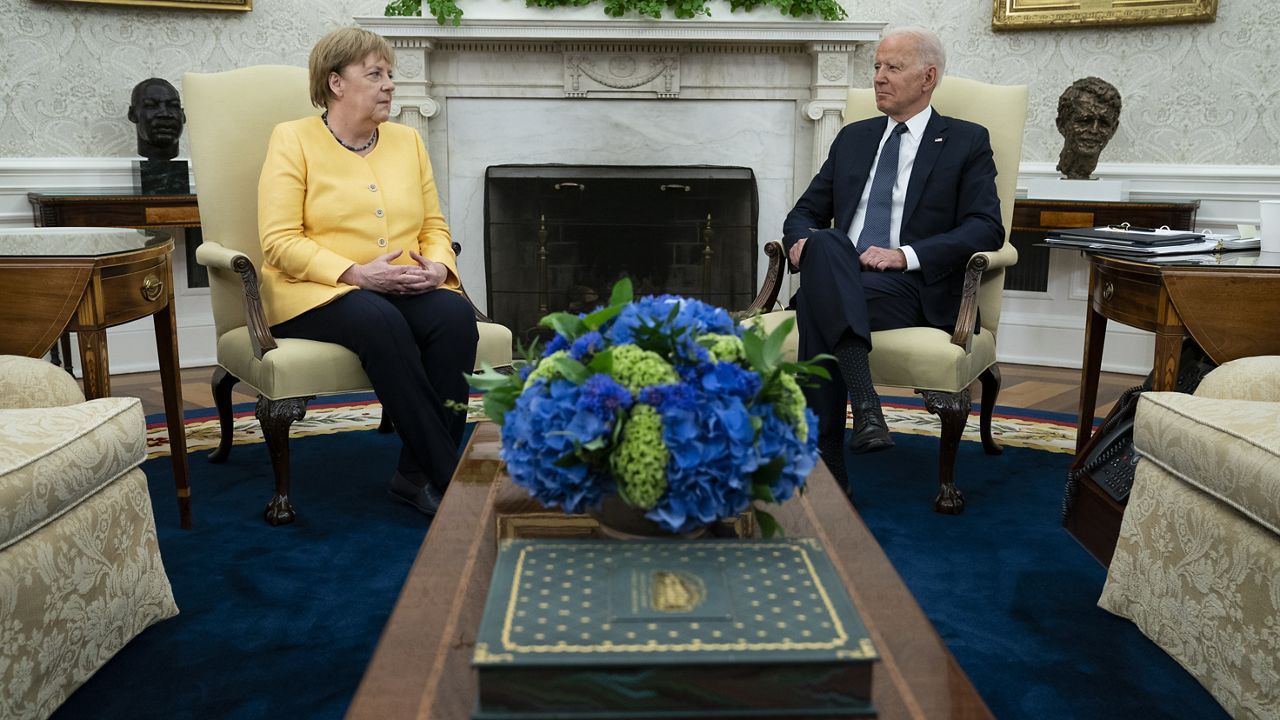President Joe Biden welcomed German Chancellor Angela Merkel to the White House on Thursday in what is likely to be her final visit to 1600 Pennsylvania Avenue as the country's leader.
“It has been my great honor to welcome a dear friend back to the White House,” Biden said of Merkel, as the two leaders took the podium for a joint press conference following a closed-door meeting.
The German chancellor plans to step down after September's elections after a 16-year run as the country's leader.
“Here's an exemplary life of groundbreaking service to Germany, and I might add, and I mean it from the bottom of my heart, to the world,” President Biden said of Merkel. “On behalf of the United States, thank you for your career of strong, principled leadership, and thank you for speaking out for what is right.”
The veteran German leader and Biden on Thursday discussed a “wide range of issues,” according to the president. One issue that took center-stage was that of China, as Germany has strong trade ties with the nation, but has also been critical of Beijing’s human rights record.
Both leaders on Thursday agreed on the need to spread Democratic ideals both in China and throughout Europe, with Biden saying the two countries “will stand up for democratic principles and universal rights when we see China or any other country working to undermine free and open societies.”
“We stand up for free, democratic societies, stand up for those rights, the rights of those who live in these societies,” Merkel agreed. “So wherever human rights are not guaranteed, we will make our voices heard, and make clear that we do not agree with it.”
Merkel, who is keen to avoid a situation in which Germany might be forced to choose sides between China and the United States, noted there are “a lot of challenges ahead” in determining economic, military and security policy with China.
Merkel has long insisted on the need to cooperate with China on global issues such as combating climate change and tackling the coronavirus pandemic, even while Biden’s predecessor, Donald Trump, was accusing Beijing of having started it (China rejects those allegations).
Climate change was another key talking point during Thursday’s meeting, especially as Germany and neighboring European countries have been inundated by severe floods in recent days. At least 50 people have died and dozens were missing Thursday across Germany and Belgium.
“I grieve for those who have lost their lives in this disaster,” Merkel said of the tragedy, expressing shock at the scope of the flooding. “We still don’t know the number. But it will be many.”
“I want to express to you and to the people of Germany my sincere condolences, and the condolences of the American people, for the devastating loss of life and the destruction due to the flooding over the past twenty-four hours in Germany and neighboring countries,” Biden told Merkel.
While it’s unclear if global warming is the direct cause of the extreme rainfall in Germany, Biden nonetheless took the opportunity to announce a new climate and energy partnership that will “support energy security and the development of sustainable energy, sustainable energy technologies, and emerging economies, including in Central Europe and Ukraine.”
The two leaders also discussed Nord Stream 2, a Russian gas pipeline that Washington opposes. The pipeline, which is nearly complete, is contentious because of its impact on Ukraine; gas will be shipped directly from Russia to Germany, meaning Ukraine will not have access to transportation fees.
Biden noted on Thursday that his opinion on the matter has been known for some time, adding that “good friends can disagree.” While Biden opposes the pipeline, its construction was nearly complete by the time he took office, and the president said sanctioning Russia at the time “did not seem to make any sense.”
Instead, the U.S. and Germany will work together on steps moving forward, with Biden saying the two leaders have asked their respective teams to look into “practical measures” Europe can take to protect Ukraine’s energy security. Merkel said Germany will “actively engage” should Russia attempt to bypass Ukraine for geopolitical purposes.
“Let me say very clearly, our idea is and remains that Ukraine remains a transit country for natural gas,” Merkel said, adding: “That Ukraine, just as any other country in the world, has the right to territorial sovereignty, which is why we continue to be engaged.”
While there were a few points of tension during Thursday’s meeting, Biden is eager to offer Merkel a proper farewell. The president plans to host a small dinner in honor of Merkel and her husband, chemist Joachim Sauer.
“She knows the Oval Office as well as I do,” Biden joked of Merkel, who has dealt with four U.S. presidents during her time in office.
In attendance at Thursday’s dinner will be a swath of former government officials, including former Secretaries of State Hillary Clinton and Colin Powell.
Merkel will also receive an honorary doctorate, her 18th, from Johns Hopkins University and is scheduled to speak at the university’s School of Advanced International Studies.
Merkel's interactions with U.S. presidents has often been memorable, if not occasionally awkward: From an impromptu neck-and-shoulder rub from George W. Bush in 2006 to telling Barack Obama that "spying on friends is not acceptable" after reports later that year that the U.S. National Security Agency had listened in on German government phones, including Merkel’s.
Then there was Merkel’s first visit to the Trump White House in 2017, which produced a famously awkward moment in the Oval Office: Photographers shouted “handshake!” and Merkel quietly asked former President Donald Trump “do you want to have a handshake?” There was no response from Trump, who looked ahead with his hands clasped.

They did, ultimately, shake hands a number of times over the next few years.

As vice president, Biden had a rapport with Merkel during the Obama presidency, but the two were never particularly close. But Merkel forged a strong working relationship with his former boss, former president Obama, which appeared to gain personal warmth over time. Obama even awarded Merkel the Presidential Medal of Freedom, the nation's highest civilian honor, in 2011.

The Associated Press contributed to this report.



